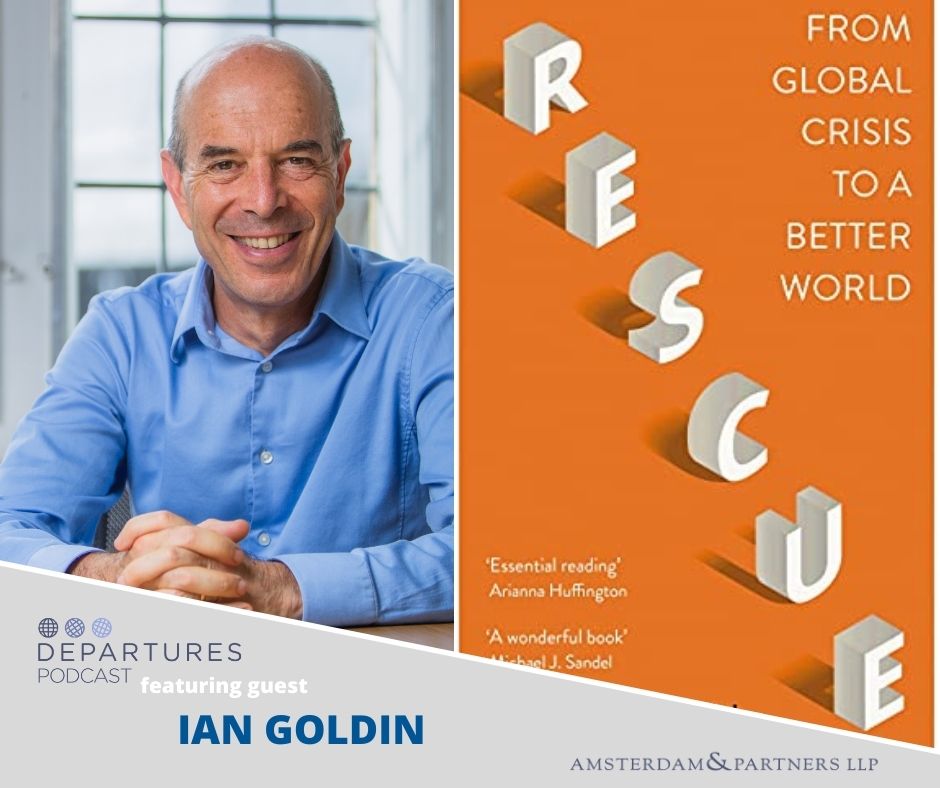Departures Podcast with Ian Goldin, author of ‘Rescue: From Global Crisis to a Better World’

The disruptive impact of the COVID-19 pandemic has obliterated many standing global norms, but it’s less clear how this crisis could change our approach to solving the world’s biggest challenges.
According to Ian Goldin, who is a Professor of Globalisation and Development at the University of Oxford, the coronavirus pandemic could serve as the necessary catalyst to set in motion a much stronger response to a vast array of challenges, from climate change to inequality to conflicts.
With the pandemic, Goldin argues in his new book, “Rescue: From Global Crisis to a Better World,” the entire world is sharing the same experience at the same time for the first time. After going through the crisis together, many people finally understood the essential role of government in their lives. Governments understood that many taboo policies, such as direct relief payments to citizens, banning bankruptcies and evictions, were now possible.
By focusing on reducing the number of participants to a solution, instead of just kicking problems up to the UN level where nothing happens, there are pathways to solving or at least making progress on many major issues of the day – we just have to decide that we want to, argues Goldin.











